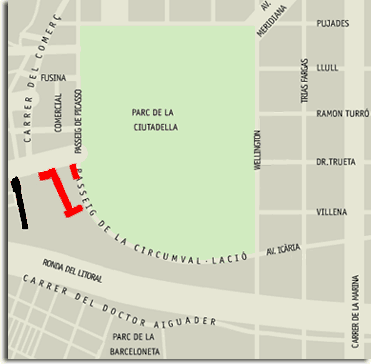| |
ISMIR
2004 Tutorials
Date: Sunday, 10th of October
2004
Time: 4:00 PM - 7:00 PM
1. Machine Learning for Music Information
Retrieval
Sally Jo Cunningham and David Bainbridge
This tutorial will provide an overview of machine learning
techniques and their applications in music information retrieval.
We will look at the algorithms through case studies of published
research in using machine learning for music or text information
retrieval. Included in the tutorial will be a demonstration
of Weka, an open-source machine learning workbench that incorporates
many of the popular learning algorithms. Weka is widely used
both in research and for commercial learning applications.
This is an introductory tutorial, and assumes no prior knowledge
of machine learning.
2. Software Frameworks for Analysis
of Audio and Music Signals
Xavier Amatriain and George Tzanetakis
The tutorial will describe how software frameworks can be
used for research and development in the context of Music
Information Retrieval (MIR). It will be divided in two parts.
In the first one we will give a general overview of such frameworks
with emphasis of MIR. We will discuss the main features and
advantages/disadvantages of using Matlab compared to more
focused frameworks such as CSL, OSW, SndObj, Marsyas or CLAM.
In the second part we will give a more in-depth overview of
two of these frameworks: Marsyas and CLAM. We will talk about
the general underlying model and show some of its applications
in the MIR arena.
3. Musical Knowledge, Computational
Models and Retrieval
Elaine Chew
Approaches to music information retrieval that are grounded
in musical Intuition and knowledge can exploit the multiple
levels of musical structure to increase efficiency and lend
insights into the retrieval process. The tutorial will provide
a gentle introduction to musical concepts, with a focus on pitch
structure, and an overview of computational models for tonal
induction, approximation and segmentation. The algorithms will
be based mainly on the Spiral Array model, a geometric model
for tonality that represents and summarizes tonal entities in
3D space. The musical features extracted computationally will
be verified aurally. Implications for, and applications to,
music information retrieval will be discussed. The tutorial
assumes no musical knowledge, only open ears and some musical
intuition.
>>
Download slides as pdf (6 MB)
Venue:
Other than the ISMIR 2004 conference events, the tutorial sessions
will take place in the França building of Pompeu Fabra
University (red in map), rooms 210, 212, and 216:

Addresses:
Passeig de Circumval·lació, 8. 08003 Barcelona
Phone: 93 542 25 00. Fax: 93 542 24 51
How to get there: http://www.bcn.es/guia/welcomea.htm
Public transport
Bus: 14, 17, 36, 39, 45, 51, 57, 59, 64, 157
Underground: Barceloneta (L4)
RENFE: Arc de Triomf (C1, C3, C4) and França station
(R2, R5, R6, R7)
|
|




